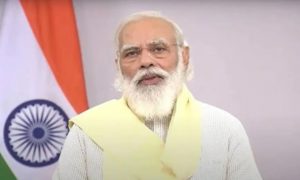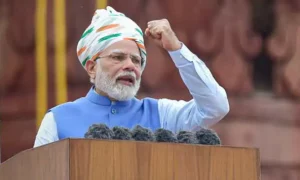Seldom do prospective home buyers purchase a flat by paying the entire amount upfront. Many lack the funds required to make a purchase even as property prices remain stable or fall.
The dearth of capital prompts home buyers to opt for home loans for which lenders seek a 20 percent down payment. Arranging this money can be a tough ask for many. Some even consider withdrawing money from their employee provident fund (EPF) accounts.
But is it a wise idea? After all it is the money kept aside for the golden years. Let’s see how it works.
For beginners, an employee who has been associated with EPF for at least three years and have at least Rs 20,000 account balance is eligible for this. One can withdraw up to 90% of the balance to buy home subject to other conditions laid out by authorities. More can be read here.
Since the EPFO is going to pay the society or the developer of the property, such withdrawal of money can be used to pay for the entire house — down payment or home loan EMI. You can also avail the interest payment subsidy on Pradhan Mantri Awas Yojana (PMAY) on the payments made through EPF for home buying. Looking at the benefits, this becomes a ‘go to’ option for many salaried individuals when they want to buy their dream home. But the personal finance experts think otherwise.
“EPF helps salaried individuals to accumulate funds while they are working. The corpus is meant for the period when one retires and there is no regular income. Hence, it is not supposed to be withdrawn before its maturity as this could jeopardise one’s retirement,” says Balwant Jain, a tax and investment expert based in Mumbai. By spending your money meant for your golden years on your home you are exposing yourself to the risk of leaving no funds for your retired life. “Remember, there are many banks who are willing to lend you money to buy a house. But nobody lends you money to live retired life,” points out Pankaj Mathpal, founder of Mumbai based Optima Money Managers, a wealth management and financial planning firm.
EPF is an opportunity to accumulate money for the post retirement period. You keep contributing a small fraction of your salary to the EPF and your employer matches your contribution. As the salary increases, the contributions do go up. That makes a large corpus in your hand when you retire, provided you do not withdraw it for any other purpose. “When you keep contributing to this corpus and do not withdraw money in the interim period, the magic of compounding works in your favour over your working years. That leaves you with a large corpus which is difficult to accumulate for many salaried individuals otherwise,” explains Balwant Jain.
House is a necessity and in the Indian context ‘owned house’ is a social and psychological need for many of us. But ‘short term thinking’ focussed on immediate gratification must be avoided at any cost. “There are cases in which individuals use their EPF money for home buying, child’s education and marriage. Such individuals find it difficult to pay for their day to day expenses after they retire,” says Mathpal.
“It is better to make a plan for home buying. Start saving money to accumulate the down payment amount over three to five years. If the home prices go up or your investments yield less than expected, you may want to delay the home buying by a year or two. Avail of the home loan after you make the down payment but do not touch your EPF money,” he adds.
“It is better to compare the cost of funds (rate of home loan) and the rate of return offered on the EPF before taking the funding decision,” says Joydeep Sen, founder of wiseinvestor.in, a financial advisory firm based in Mumbai. The repayment of home loan principal and interest both attract the tax benefits. Depending on the tax slab of the individual the cost of home loan stands reduced to the extent of the tax exemption availed. In most cases, the cost of home loan is lower than the rate of return receivable on the EPF, which makes the home loan better means to pay for your home.
Do not withdraw money from your EPF account. Let your EPF balance compound and help you retire rich.



































